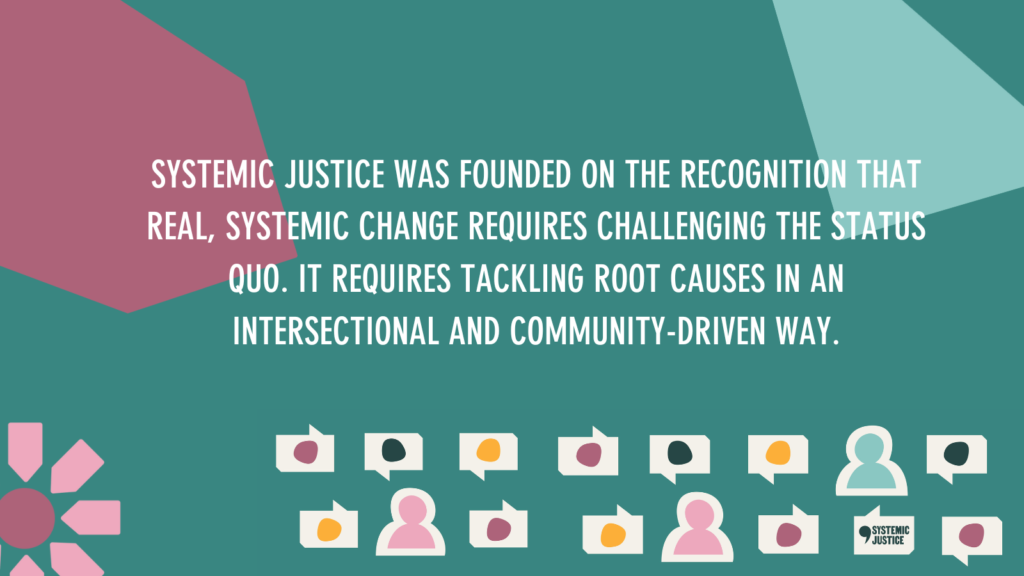This week, Systemic Justice celebrates its second anniversary. When we started getting serious about building the organisation in late 2021, our main focus was the work. How could we build a way of working with communities that ensured they remained fully in their power when using strategic litigation in their campaigns for racial, social, and economic justice? It only dawned on us a bit later that, in Europe, we also were “a first”; the extreme degree to which the legal profession, including NGOs, does not reflect our society had not fully sunk in.
We are proud to be a Black-led and majority BPOC team. However, Systemic Justice shouldn’t be the only one working on strategic litigation for racial, social, and economic justice in Europe. There should be many more of us. As we celebrate our two-year anniversary since our founding, we want to take a moment to reflect on why.

When we meet people in recruitment interviews, they consistently comment on how “refreshing” it is that we are a Black-led organisation. This only goes to show how far away we still are in breaking the white, concrete ceiling in the non-profit world. Perhaps not surprising, if you see how little funding goes to initiatives that do not fit the white saviour mould. And something that urgently needs changing.
This also became clear from our conversations with community partners, who shared experiences of extractive and exclusionary dynamics when working with a very white legal profession and litigating civil society space. This has perpetuated a feeling that was shared during our roundtables, of strategic litigation being “remote” and “inaccessible.”. One participant shared an experience of feeling like lawyers were “shopping for cheap cases to widen their portfolio rather than actually help.”.
The dynamics of the funding landscape drives us all to focus on our “niche” and emphasise what our “Unique Selling Point” is: what sets us apart from everyone else and therefore gives us the right to exist, take up space, get supported? Are we not “duplicating efforts”? We argue that it should be the opposite: there is so much work to do in racial, social, and economic justice – we need all the people, organisations, movements, and collectives getting involved that we possibly can.
There is more work to do than any of us are able to accomplish in each of our lifetimes. But there is power in numbers and mass: we need a great number of people doing this work, representing the true diversity of society, across all spectrums of intersectional experience, and responding to the urgency and scale of the challenges before us.
Conservatives know this and have been organising this way for decades: they have many organisations doing roughly the same thing, aligned think tanks and media to support and amplify the work to drive the change they want; even on the litigation front they work with tactics of continuously filing new cases until they get the result they want. This makes for a concerted, steady effort to create change, while progressives are being kept busy with proving that they are sufficiently “unique” and “impactful” to carry on doing their work.
Systemic Justice was founded on the recognition that real, systemic change requires challenging the status quo; that it requires tackling root causes in an intersectional and community-driven way. Making sure that this happens at scale requires many more initiatives like ours: organisations, individuals, and collectives that reflect the multitude of lived experiences in our societies and that truly prioritise community needs in their work. We hope to celebrate our future anniversaries together with them.
